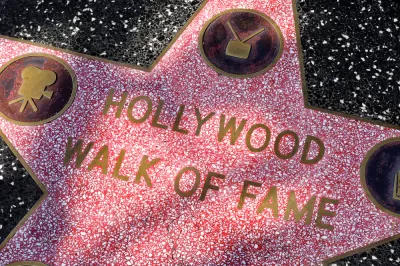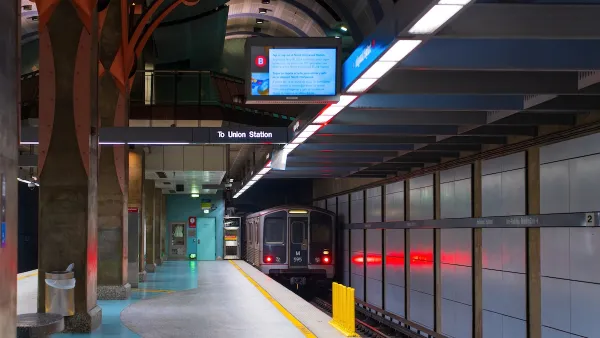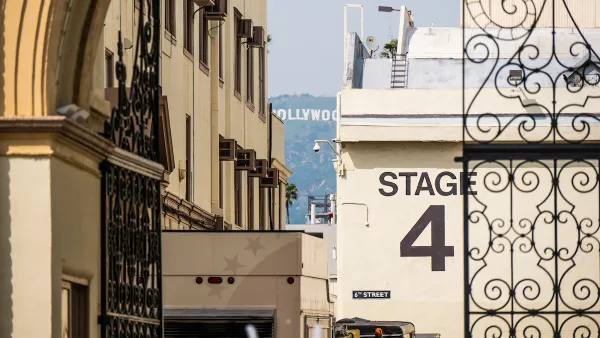A new study sheds light on why it seems that the sun shines 366.25 days a year in Los Angeles but falls short of solving one of life's great mysteries.

A new report by the Celluloid Beach Institute, titled “A Critical Examination of Trends From Dénouement to Finale in the Prevailing Narrative of Geographically Stationed Life Cycles,” studied the lives of thousands of subjects in various metropolitan regions around the country for about 90 to 120 minutes to determine the likelihood of a Hollywood Ending.
The study reports that the impact of geographic location on the likelihood of Hollywood Endings was not statistically significant except in Los Angeles. According to the study’s abstract: “Except in Los Angeles, there doesn’t seem to be any geographic premium on the occurrence of meaningful events, or, for that matter, ambiguous events that require a deeper intellectual or emotional struggle to comprehend.”
Here are a few examples of the report’s findings:
- “Angelenos are 76 percent more likely to finish the same string of spaghetti at the same time.”
- The chance of alien attack rises by 24.6 percent during the summer months in Los Angeles.
- “Angelenos are 96 percent more likely to be Alicia Silverstone’s ex-step-brother and 82 percent more likely to be Paul Rudd’s ex-step-sister. Chances of falling in love with either Paul Rudd and/or Alicia Silverstone are 61 percent at the end of high school and increase by four percent every year until age 35, at which point there is no market for data.”
- Chances of being a private detective who never sleeps, can’t avoid trouble, and always gets the dame increase tenfold while in Downtown Los Angeles.
The report defines most examples of the Hollywood Ending as “a satisfying conclusion to a zesty, vicarious thrill that reinforces the audience to emerge from the experience ready to navigate the world, like in Collateral, starring Tom Cruise, or Point Break, starring Keanu Reeves.” The study, however, also included a subgenre of Hollywood Ending, defined as “an ironic or ambiguous ending which should be classified as serious art and inspires the audience to complicate and problematize their assumptions, like the Oscar-Award winning Crash, starring an ensemble cast of critically acclaimed actors and actresses, or End of Watch, starring Jake Gyllenhall.” In the latter case, the study controlled for Chinatown, because, according to the study, “no one really understands what the hell happened in that movie anyway.”
The report stops short of making a larger conclusion about the meaning of these data: “It’s unclear if so many movies are produced and set in Los Angeles to imitate the satisfying nature of events that unfold in the region or whether the satisfying nature of so many movies produced and set in Los Angeles invite the mimicry of the environment.” Further study is recommended to determine the resolution of that question.
FULL STORY: Study: Hollywood Endings Most Likely in Los Angeles

Planetizen Federal Action Tracker
A weekly monitor of how Trump’s orders and actions are impacting planners and planning in America.

Map: Where Senate Republicans Want to Sell Your Public Lands
For public land advocates, the Senate Republicans’ proposal to sell millions of acres of public land in the West is “the biggest fight of their careers.”

Restaurant Patios Were a Pandemic Win — Why Were They so Hard to Keep?
Social distancing requirements and changes in travel patterns prompted cities to pilot new uses for street and sidewalk space. Then it got complicated.

Platform Pilsner: Vancouver Transit Agency Releases... a Beer?
TransLink will receive a portion of every sale of the four-pack.

Toronto Weighs Cheaper Transit, Parking Hikes for Major Events
Special event rates would take effect during large festivals, sports games and concerts to ‘discourage driving, manage congestion and free up space for transit.”

Berlin to Consider Car-Free Zone Larger Than Manhattan
The area bound by the 22-mile Ringbahn would still allow 12 uses of a private automobile per year per person, and several other exemptions.
Urban Design for Planners 1: Software Tools
This six-course series explores essential urban design concepts using open source software and equips planners with the tools they need to participate fully in the urban design process.
Planning for Universal Design
Learn the tools for implementing Universal Design in planning regulations.
Heyer Gruel & Associates PA
JM Goldson LLC
Custer County Colorado
City of Camden Redevelopment Agency
City of Astoria
Transportation Research & Education Center (TREC) at Portland State University
Camden Redevelopment Agency
City of Claremont
Municipality of Princeton (NJ)





























